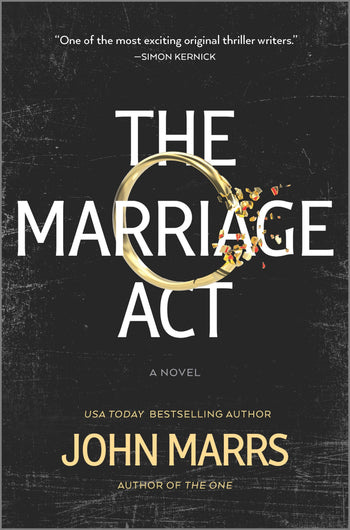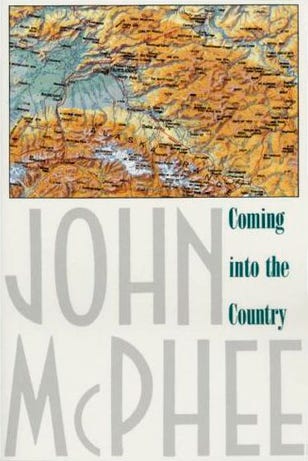Best April Reads: 2 Fiction, 2 Nonfiction
An Irish drama of love and friendship, the Alaskan wilderness + more
Fiction
The Rachel Incident
by Caroline O'Donoghue
Read it if you’re into: Contemporary dramas, Irish culture, modern love
This contemporary work of fiction revolves around Rachel and James, two college-aged friends who meet at a bookstore in Cork and bond instantaneously. Their union is tested when Dr. Fred Byrne, Rachel’s married professor, enters the picture.
I was surprised by how quickly this book took hold of me and how hard it held on. An early 2000s Ireland, laid waste by economic recession, is a character in and of itself. Add to it these two lovable messes and it is brought to life in an impressive way. We who have shamed ourselves with memories of youthful misadventures will find every aspect of this cringy, unfortunate and utterly enjoyable. O’Donoghue peels back the curtain on the vulnerable and intense lives of young people who believe themselves to be the center of the universe. How does this woman write a flawed, complicated young woman, a fierce gay man and a muddled, middle-aged professor with equal accuracy and wit? I don’t know, but she does.
The Marriage Act
by John Marrs
Read it if you’re into: Speculative thrillers, tech driven mysteries, fast reads, The One on Netflix
It’s the near future in the UK, and the government is using artificial intelligence to keep marriages intact and on track. Sounds fine…until it isn’t.
Marrs’ latest is another speculative thriller that takes place in the very near future, a world not so dissimilar to ours, in which marriage is promoted and regulated by a government bent on exerting ever more control over its citizens. This is a running theme of all Marrs’ books, most of which are centered in the same universe. You don’t need to have read the others to enjoy this one, but if you have, there are fun little Easter eggs hidden inside. As the technology gets increasingly more oppressive, so does the book’s pace. We must suspend disbelief for some of the reveals (I won’t say more for fear of spoilers), but even so, it adds to the fun rather than detracts. The cast of characters, as in Marrs’ other books, starts out disparate and unconnected, before revealing itself to be an overlapping world of flawed players, linked to one another in ways they and we can’t yet comprehend. An added bonus: Marrs is beholden to approximately zero of his characters, and will kill them off without a second thought. It’s fun!
Nonfiction
Coming into the Country
by John McPhee
Read it if you’re into: Travelogues, Alaska, people living off the grid, creative nonfiction
An intricate look at Alaska, its nature, customs and people, split into three parts. The first details the majestic beauty of the northernmost tree line in the Arctic Circle; the second is a look at urban Alaska; and the third centers on the lives of the many varied people who choose to make their lives in the bush, away from modernity and its attendant comforts.
A welcome respite from the chaos of everyday life, this book transports the reader to the slow moving rivers and vast woods of Alaska, where time is measured in ice thaws and salmon spawning, and mercurial Mother Nature reigns. A long and slow simmer perfect for those looking to get lost in the majesty of our natural world, best slowly savored over a long period of time. This book works best when you settle into its rhythms, focus on the words and let them transport you to a world so unlike your own.
Waco: David Koresh, the Branch Davidians and a Legacy of Rage
by Jeff Guinn
Read it if you’re into: Cults, narrative nonfiction, the ATF
How did a small, oddball community on the Texas plains become a household name? And why did 82 people die at the hands of the United States government? The man who wrote The Road to Jonestown (one of the great cult books of all time) now focuses on Waco, a moniker we’re all familiar with but about which few of us know the details.
This appalling account is half about the man who came to call himself David Koresh and the cult he created, and half about the unbelievable botching of this operation by the ATF as they attempted to take him down. Koresh himself is fairly unremarkable: a young, listless man with a gift for proselytization (and to whom God has, of course, told to take many wives). The fatal ineptitude of the ATF depicted, though, is the more astonishing part. The way it played out is jaw dropping and extraordinarily portrayed, like witnessing the Three Stooges very seriously attempt to organize and execute a raid. The ATF needlessly made martyrs of Koresh and the Branch Davidians, who believed they would not be allowed to live as they pleased and instead were convinced they would meet their end in a violent confrontation with a government that was out to get them from the start. There’s no way to conclude this wasn’t a national disgrace that could have been prevented in a million different ways, and Guinn does an excellent job of placing the events firmly and indisputably in the historical record.








I love how you write about writing!! I am very interested in the book about Alaska. Sounds like the perfect escape. And hoping someday we’ll get a book by you!!!
V intrigued by The Marriage Act!